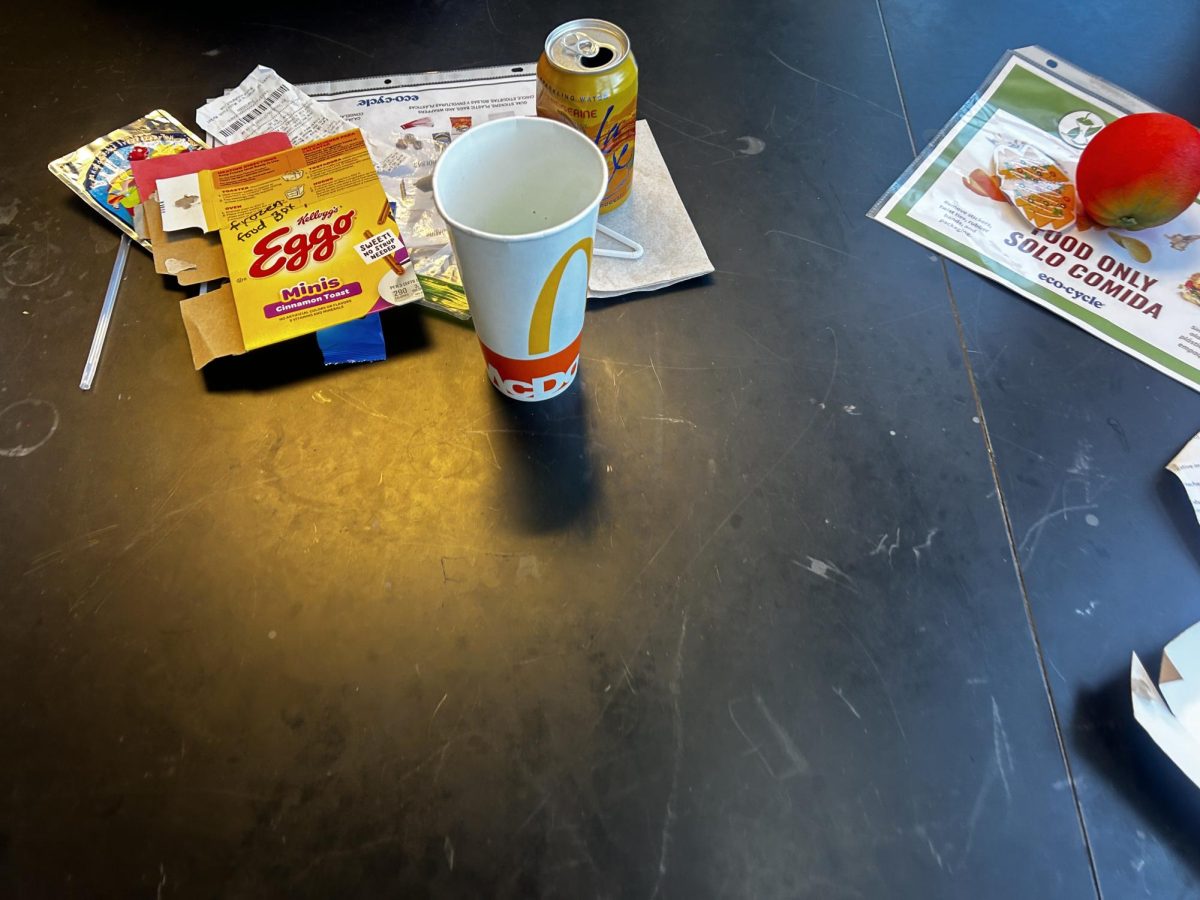On Valentine’s Day, composting returned to Boulder High. While not the most romantic development at Boulder High, it is certainly a big deal for the Boulder community and environment.
Last year, you may have read my article titled: Eco-Cycle Has Composted My Heart. When the first compost bin was removed, I was furious that the composting bins were being eliminated from Boulder High. But now I understand where the blame lies: with the students. It was the fault of the students ourselves, we created excessive contamination and catapulted Boulder High down an unfortunate path of zero composting.
Cambria Miers, an Environmental Educator from Eco-Cycle, and Haley Connors-Keith, a Green Star Schools Program Coordinator, took matters into their own hands. On February 14th they passed out roses and other varieties of flowers as an incentive to students who composted properly. Miers says, “We are here to be what we call, waste goalies. We’re making sure that people are putting their compost in the right spot, recycling in the right spot, and trash in the right spot.”
Connors-Keith shares, “It’s just a little incentive to get students to compost in the cafeteria, so if they did compost we’re just giving them a little flower bouquet for praising them for composting and doing something good for the earth.” These flowers are a good motivator to teach students how to compost properly and are expanding composting education throughout the Boulder High community.
Other initiatives being taken to improve the composting awareness of students include in-class visits. On February 13th, Kim Orr, an Eco-Cycle representative, visited my science class to teach us about the new rules surrounding composting. These restrictions will help to prevent the contamination that caused the initial composting removal in 2022.
Boulder High Biology teacher and Eco-Cycle Collaborator, Julie Thompson shares, “This was a district initiative and Eco-Cycle and BVSD worked together on this to try to get as many schools back on compost by Earth Day as possible, that’s April 22nd.”
Boulder High student and Environmental Club member, Kara Dougherty ‘26 shares her perspective on the compost bins returning to Boulder High, “I’m really excited, I think it’s going to be really good to have compost back.” Many students agree with Dougherty’s statement, student Tessa Nims ‘25 was interviewed previously about the topic in a 2022 article about her feelings about the compost bin removal, stating, “I am very angry.” Nims has since changed her tune and is very excited about the new compost bin development.
Ms. Thompson says, “The reason composting was taken away had nothing to do with the schools doing something wrong, it was the whole community missorting the stuff and so the compost facility that does the composting, where the stuff is delivered to, had so much contamination they had to reset to just yard waste and food waste.” Ms. Thompson is speaking about the composting facility, A1 Organics, a family-owned, Colorado Organic Recycler.
Ms. Thompson supports A1’s decision to remove the bins in the first place because she shares the complicated dilemma of reintroducing composting, “And they did the right thing, I have some of their compost in my classroom that I use for lessons and it’s just filled with plastic pieces, glass, metal, all kinds of stuff. The challenge is not just setting a compost collection bin down in a school, the challenge is: how do you get the community to sort their stuff correctly?”
How can the Boulder community sustain the compost bins? Well, it starts with compost education. Going green means educating the community about how to properly compost, which is a challenge that needs to be conquered by Eco-Cycle and environmental advocates within the school before the compost bins become contaminated.



